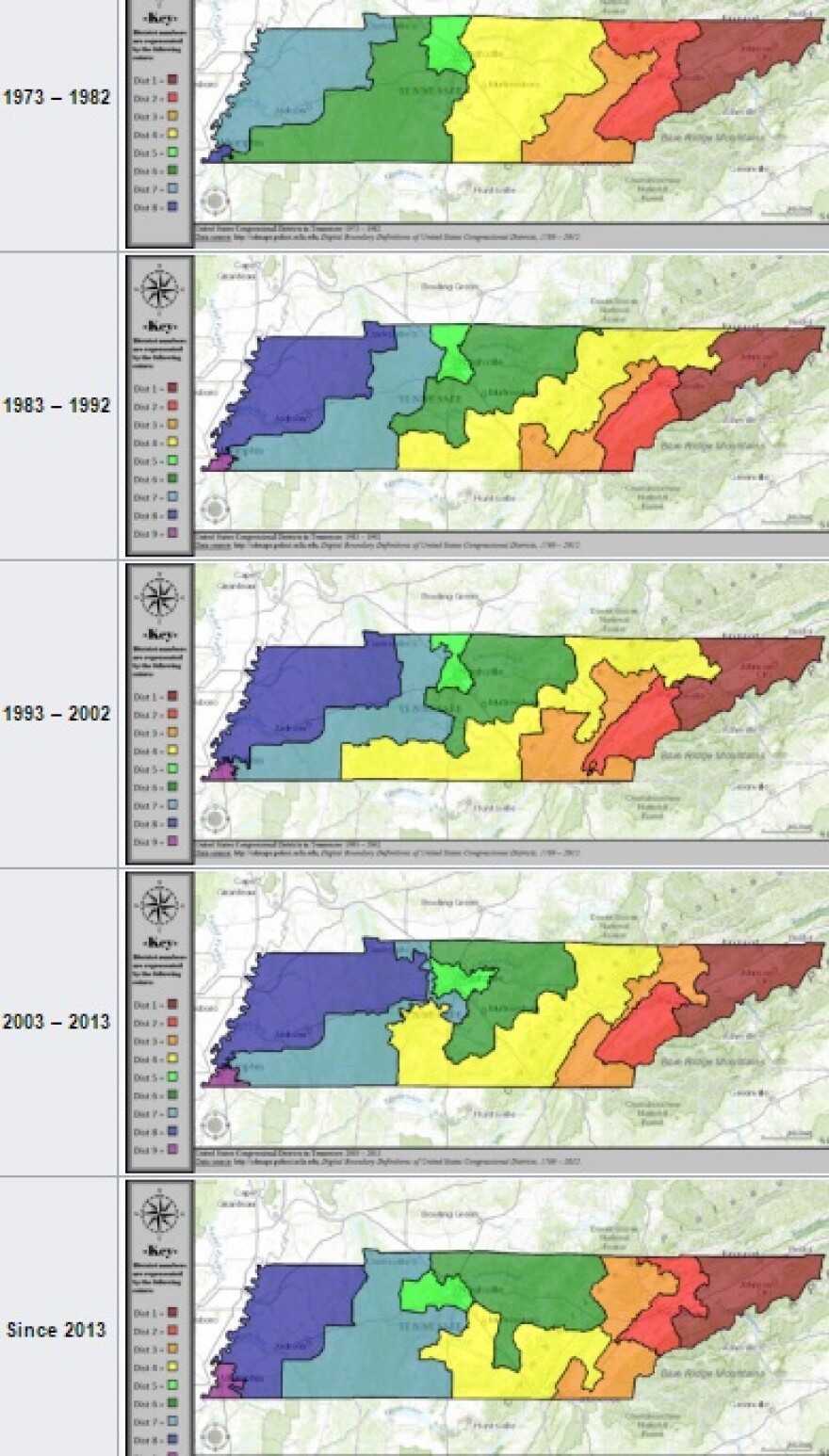WASHINGTON, D.C. (WMOT) -- A new study suggests Tennessee likely will not be impacted by an expected ruling next session from the U.S. Supreme Court on the issue of partisan, political gerrymandering.
Gerrymandering occurs when a majority political party re-draws a state’s legislative boundaries to favor the party’s candidates. The boundaries are redrawn at the start of each new decade following the national census.
The Supreme Court has repeatedly forced states to redraw district lines when they were found to have used race as a criteria, but it now appears the court plans to weigh in on districts drawn along partisan, political party lines.
Now, a study by the Associated Press suggests redistricting in Tennessee after the 2010 census didn’t significantly skew seats in either party's favor. The analysis is based on a so-called "efficiency gap" formula developed at the University of Chicago. The study says Tennessee’s current district maps account for a reasonable 1.5-seat advantage for majority Republicans.
Middle Tennessee State political scientist Kent Syler says Tennessee’s districts have more to do with where people choose to live than partisan politics.
"Democrats live in more urban areas, Republicans tend to live in more rural and suburban areas, so we have kind of gerrymandered ourselves outside of the legislative process.”
Syler says that while gerrymandering in Tennessee might not draw the Supreme Court's ire, it does have an impact.
“It would impact probably more inside party politics of maybe opening more seats up to challenges within the same party.”
Here are census maps showing Tennessee's congressional district boundaries every decade since the 1970s.



